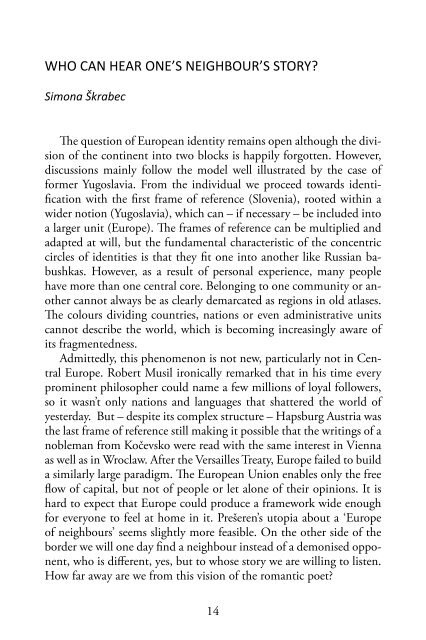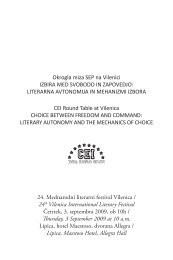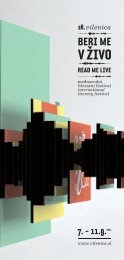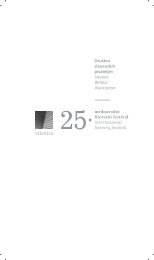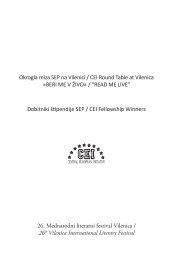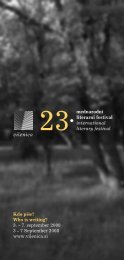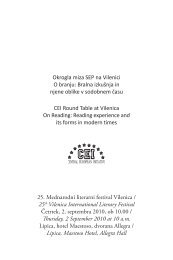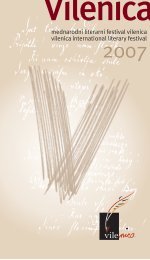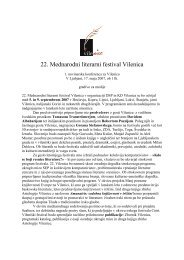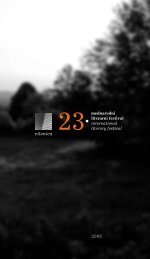PDF 3,15Mb
PDF 3,15Mb
PDF 3,15Mb
You also want an ePaper? Increase the reach of your titles
YUMPU automatically turns print PDFs into web optimized ePapers that Google loves.
WHO CAN HEAR ONE’S NEIGHBOUR’S STORY?<br />
Simona Škrabec<br />
The question of European identity remains open although the division<br />
of the continent into two blocks is happily forgotten. However,<br />
discussions mainly follow the model well illustrated by the case of<br />
former Yugoslavia. From the individual we proceed towards identification<br />
with the first frame of reference (Slovenia), rooted within a<br />
wider notion (Yugoslavia), which can – if necessary – be included into<br />
a larger unit (Europe). The frames of reference can be multiplied and<br />
adapted at will, but the fundamental characteristic of the concentric<br />
circles of identities is that they fit one into another like Russian babushkas.<br />
However, as a result of personal experience, many people<br />
have more than one central core. Belonging to one community or another<br />
cannot always be as clearly demarcated as regions in old atlases.<br />
The colours dividing countries, nations or even administrative units<br />
cannot describe the world, which is becoming increasingly aware of<br />
its fragmentedness.<br />
Admittedly, this phenomenon is not new, particularly not in Central<br />
Europe. Robert Musil ironically remarked that in his time every<br />
prominent philosopher could name a few millions of loyal followers,<br />
so it wasn’t only nations and languages that shattered the world of<br />
yesterday. But – despite its complex structure – Hapsburg Austria was<br />
the last frame of reference still making it possible that the writings of a<br />
nobleman from Kočevsko were read with the same interest in Vienna<br />
as well as in Wroclaw. After the Versailles Treaty, Europe failed to build<br />
a similarly large paradigm. The European Union enables only the free<br />
flow of capital, but not of people or let alone of their opinions. It is<br />
hard to expect that Europe could produce a framework wide enough<br />
for everyone to feel at home in it. Prešeren’s utopia about a ‘Europe<br />
of neighbours’ seems slightly more feasible. On the other side of the<br />
border we will one day find a neighbour instead of a demonised opponent,<br />
who is different, yes, but to whose story we are willing to listen.<br />
How far away are we from this vision of the romantic poet?<br />
14


